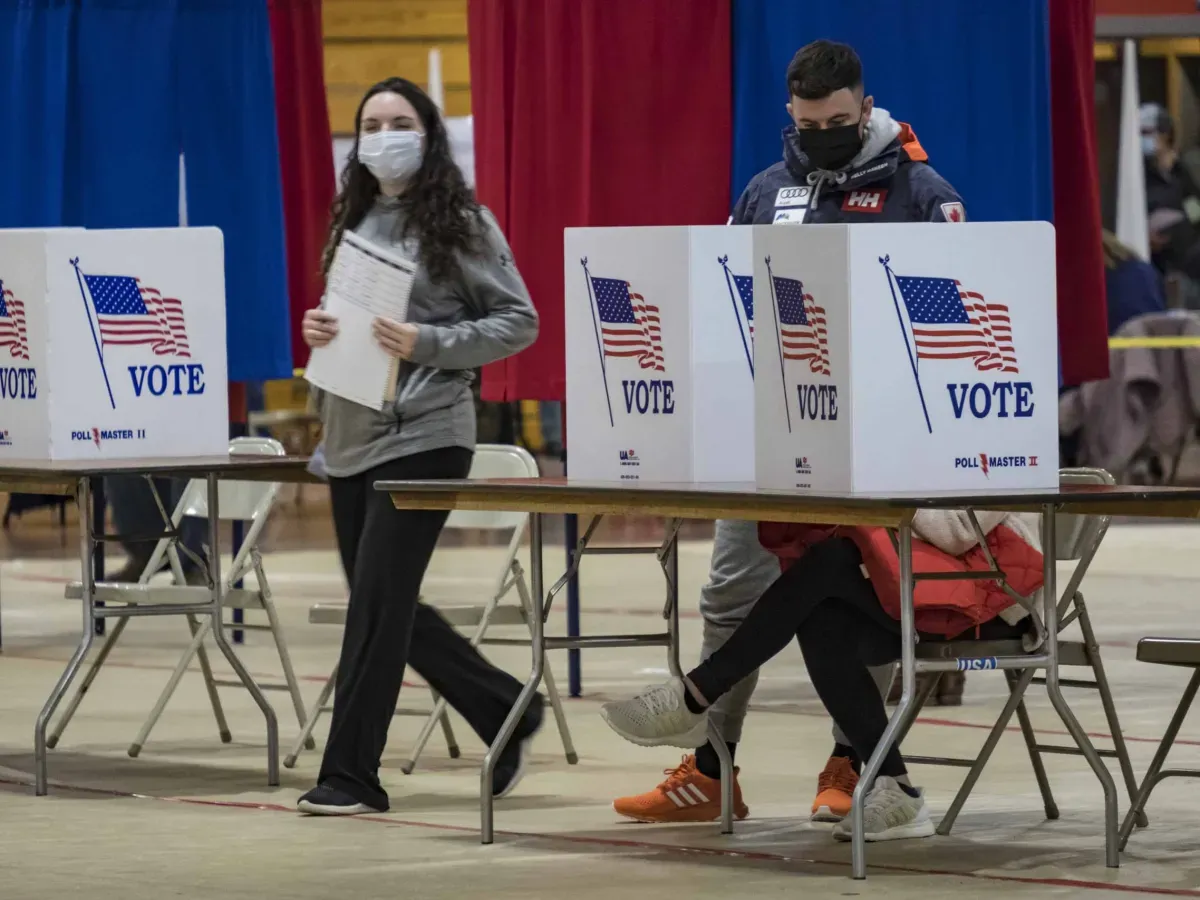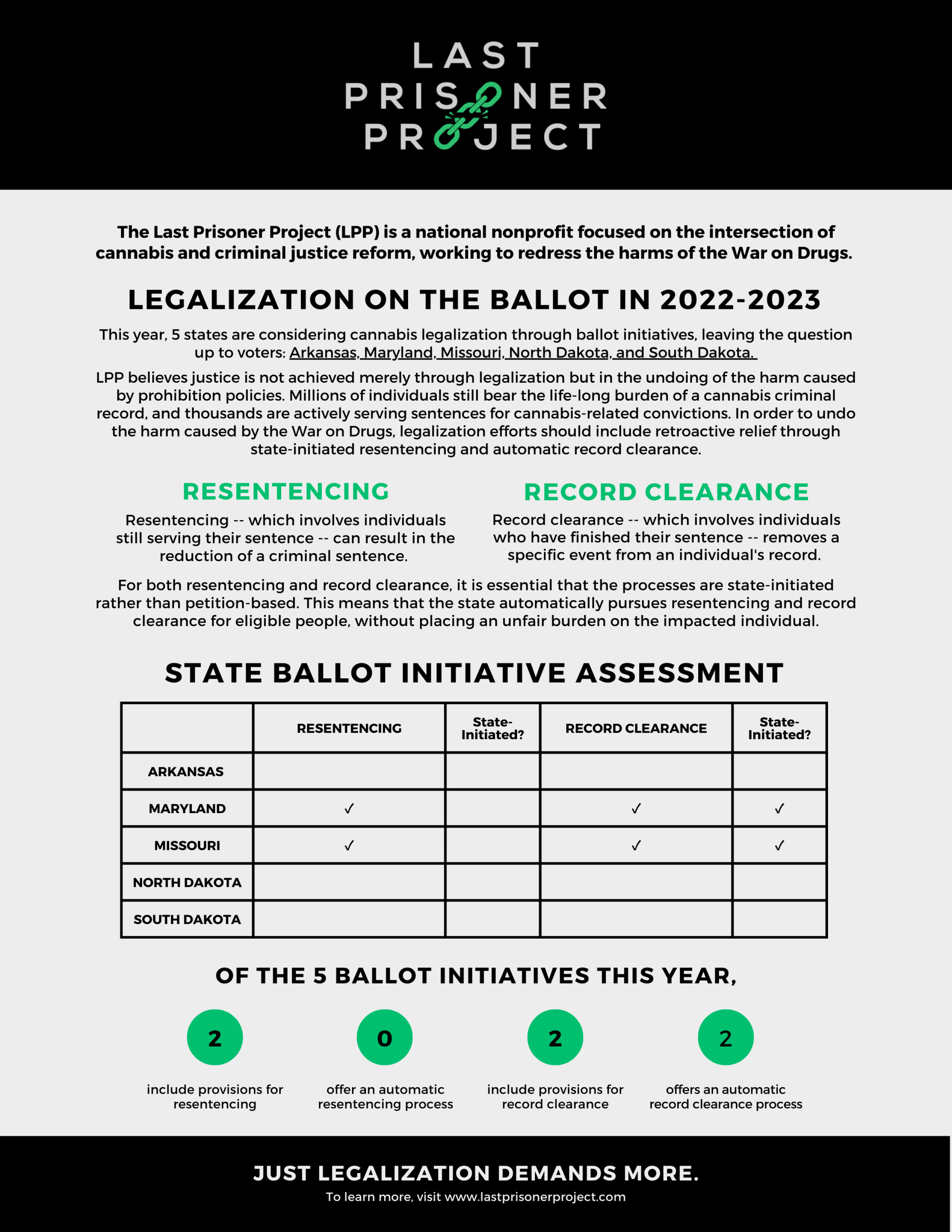Cannabis Legalization and Criminal Justice on the 2022 Ballot
The promise and pitfalls of this election season's legalization efforts.

This November, residents of Arkansas, Maryland, Missouri, North Dakota, and South Dakota will have the opportunity to decide whether or not adult-use cannabis should be legal in their states. However, while all five of these ballot initiatives ponder the legalization question, they vary significantly in how they treat the issue of criminal justice reform.
At LPP, we believe that justice is not achieved by simple legalization, but rather, by undoing the harms caused by prohibitionist policies. After all, thousands of people are actively serving sentences for cannabis-related convictions, and millions more continue to bear the life-long burden of a cannabis criminal record. To undo the harm caused by the War on Drugs, legalization efforts should include retroactive relief through state-initiated resentencing and record clearance.
Resentencing, which involves individuals still serving their sentence, can result in the reduction of a criminal sentence. To offer meaningful relief, resentencing policies should have the following components: a government-initiated process; a broad and tiered eligibility scheme; a presumption of release; clear guidance; enforceable timelines; and oversight and reporting requirements.
Record clearance, which involves people who have finished their sentence, removes a specific event from an individual's criminal record. Record clearance policies must incorporate the following provisions to offer justice to impacted individuals: a government-initiated process, a broad eligibility scheme, no waiting period, no discretionary review, oversight and reporting requirements, and a public notification campaign.
Despite the importance of these policies, many of the legalization efforts on this year's ballot fail to fully incorporate them. Unfortunately, Arkansas, North Dakota, and South Dakota completely ignore criminal justice and retroactive relief. Maryland and Missouri, however, do include provisions for both resentencing and record clearance.
While the inclusion of these provisions is better than nothing, the policies don’t go far enough. In terms of resentencing, neither Maryland nor Missouri offer a government-initiated process, forcing incarcerated individuals to go through an arduous petition-based process. Positively, in terms of record clearance, Maryland and Missouri both offer a government-initiated process that prompts automatic expungement. If implemented correctly, that policy will provide much-needed relief for many individuals. With this said, neither state completely meets LPP’s gold standards for resentencing or record clearance.
While we are thrilled to see these two states contemplating criminal justice reform on the ballot, these efforts to overturn prohibition will still leave many of the individuals most affected by it behind. In order to offer meaningful retroactive relief, these states will need further legislative action, and LPP is committed to supporting them on that path.







